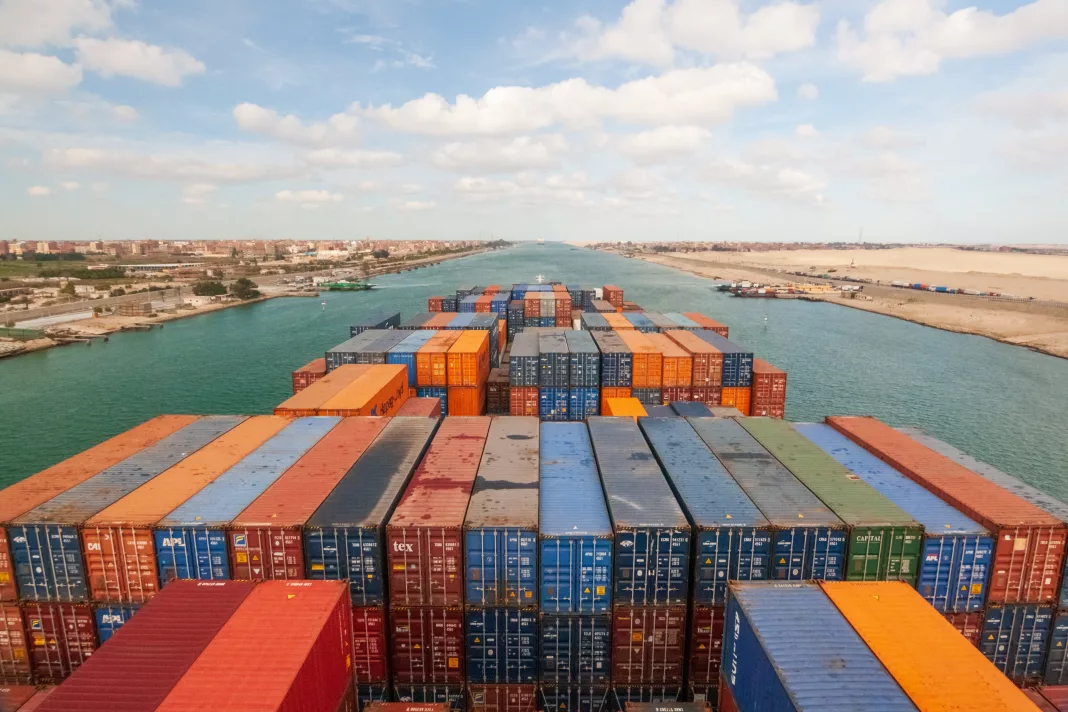Title: Red Sea Attacks Prompt $30 Billion Cargo Diversion: Impact on Global Supply Chain
Introduction:
Shippers have diverted over $30 billion worth of cargo away from the Red Sea due to the threat of attacks from Houthi militants in Yemen. As a result, carriers are rerouting vessels, causing disruptions in the global supply chain. This article explores the implications of these diversions and the measures being taken to address the security issues.
Heading 1: Shippers Divert Billions in Cargo Amid Red Sea Attacks
Heading 2: Formation of International Task Force to Address Security Concerns
Shippers’ Response to Red Sea Attacks:
– Since the start of the Israel-Hamas war, 15 strikes in the Red Sea have led shippers to divert their cargo.
– Currently, 57 container vessels are taking longer routes around Africa instead of using the Red Sea and Suez Canal.
– The total container capacity of these vessels is 700,000 twenty-foot equivalent units (TEUs), with an approximate value of $35 billion.
Heading 3: Delays and Disruptions in Global Supply Chain
Heading 4: Potential Solutions and Strategies for Shippers
Delays and Disruptions:
– Ocean carriers and companies are racing to inform U.S. shippers about potential delays caused by the Houthi threat.
– Maersk, one of the shippers affected, expects delays of two to four weeks, particularly in Europe.
– Congestion is expected at ports due to updated arrival times and planning needs.
Strategies for Shippers:
– SEKO Logistics advises U.S. clients to anticipate delays of 10-14 days for East Coast cargo, with potential further delays at ports.
– Diversions around the Cape of Good Hope add approximately 14 extra days to transit time.
– ITS Logistics recommends shippers consider booking the Trans-Pacific route to the U.S. West Coast as an alternative to the Suez Canal.
– OL-USA suggests utilizing a multi-pronged approach, including using all three coasts, rail, and truck capacity.
Heading 5: Concerns about Freight Rates and Regulation
Heading 6: Role of the Federal Maritime Commission (FMC)
Freight Rates and Regulation:
– Logistics executives express concerns about rapid increases in freight rates.
– In June 2022, Congress passed the Ocean Shipping Reform Act, giving the Federal Maritime Commission (FMC) tools to monitor and prevent unreasonable behavior by ocean carriers.
Conclusion:
The ongoing threat of attacks in the Red Sea has led shippers to divert billions of dollars’ worth of cargo, causing disruptions in the global supply chain. Shippers are exploring alternative routes and strategies to mitigate delays and ensure the smooth movement of goods. The formation of an international task force and the involvement of regulatory bodies like the FMC are crucial in addressing security concerns and maintaining a resilient global supply chain.
Note: The headings provided above are for reference purposes only and may be adjusted based on the article’s structure and content.


